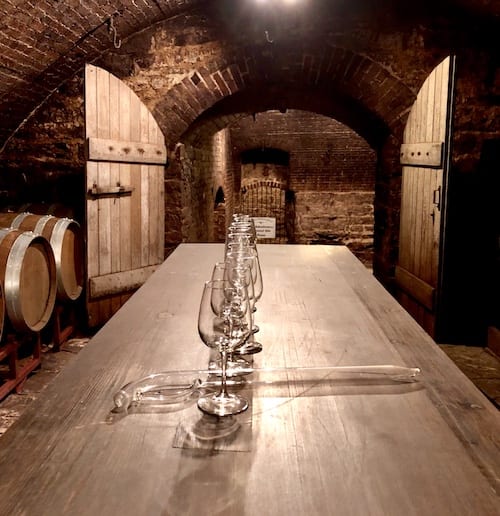Visiting wine tasting rooms comes with perks and some rules.
Visiting a wine tasting room can be a highlight for any wine country vacation given you may get to see behind the scenes during a tour, meet the winemakers, and learn about the grape growing and winemaking processes. It’s not only a tasting opportunity but an educational one too.
Keep in mind that wineries welcome visitors and rely on tasting rooms for sales. Many wineries release exclusive wines through their tasting rooms and wine clubs that are not available to the general public. It’s a great chance to sip wines you can’t find at home. Additionally, small production wineries typically only sell their wines through their tasting rooms…and they may sell out quickly.
Visiting wine tasting rooms comes with these perks and some rules. We know all of you wine lovers are always on your best behavior, but in case you wanted to get a refresher or share with your friends, we’ve laid out a few wine tasting etiquette rules for your next sip trip. Happy wine tasting!
Wine Tasting Etiquette
1. Respect is the most important rule for any tasting room visit. Be respectful of the staff, your fellow tasters, and the wine. (If you don’t like the wine, that’s totally fine. You can pour it out in the dump bucket. But, just keep your comments to yourself…or your wine tasting notes.)
2. Make a reservation and stick to it. Don’t be late and don’t be early. Since Covid, most wineries require appointments, particularly for groups of six or more.
3. Don’t wear fragrances including scented lotion, hair products, and clothes washed with strong detergent and fabric softener. Adding scents, particularly synthetic scents, destroys the delicate aroma and bouquet of most wines.
4. Dress appropriately for the season and setting. Most tasting rooms are business casual settings. Take a jacket or a sweater when visiting wine caves and wineries as they can be chilly. More tips on what to wear wine tasting.
5. It’s fine to reuse. Don’t expect a new glass for each wine you taste. Dump your leftover wine into the provided bucket between wines.
6. Don’t overdo it. It is unacceptable to get drunk at wine tastings. Use the dump bucket, it’s there for a reason. And, don’t forget to sip water between tastings. Not only does it cleanse your palate but it helps you stay hydrated.
7. Listen to your server. They know more about the product than you do, even if you are a wine professional. And, don’t forget to tip your server.
8. Be you. Don’t pretend to be a wine professional if you aren’t one. The wine business is a small one. If you are a wine professional, behave professionally. Don’t ask for perks just because you are in the business. Professionals should always prearrange their visits. That goes for members of the press too.
9. It’s business. Wine tasting rooms are running a business while offering a service. It is customary to purchase something. Don’t haggle the price. Don’t complain about the fees or try to negotiate deals. If you want a deal, join the wine club.
10. It’s a tasting room, not a bar. As a business, wine tasting rooms work best with a steady flow of guests. Don’t set up camp at the bar or a table and expect to linger for hours. Go with the pace your server sets.
11. Check before you bring kids and pets. Don’t bring children or pets to a wine tasting room without getting permission in advance. Tasting rooms are not playgrounds and if children and pets are permitted, keep them under control and quiet. Some tasting rooms have children and pet friendly zones. Stay in the zone with yours.
12. Last but not least, make sure you have a designated driver. If you’re doing a DIY wine tasting make sure someone in the group isn’t sipping, or hire a service so everyone can sip responsibly. (Should you DIY or hire a driver?)


